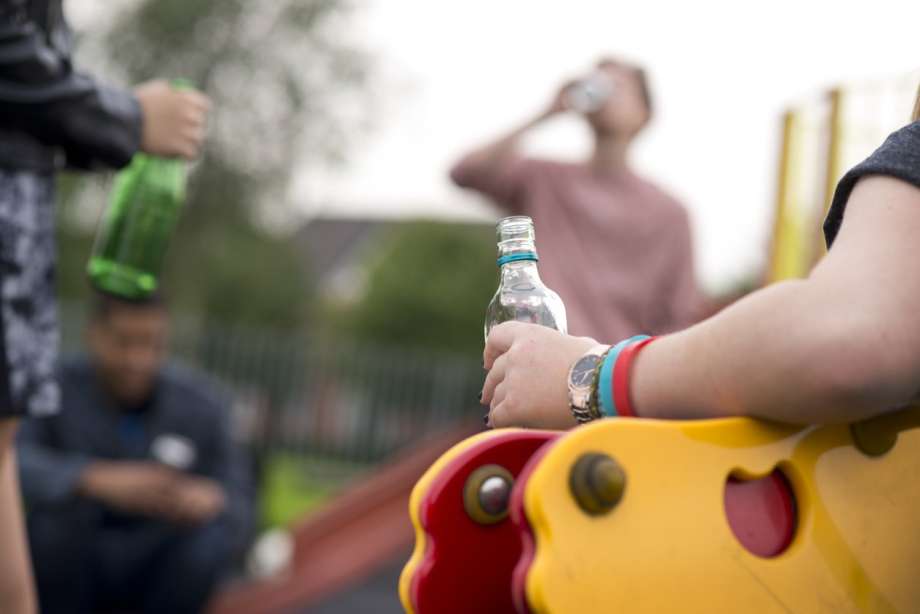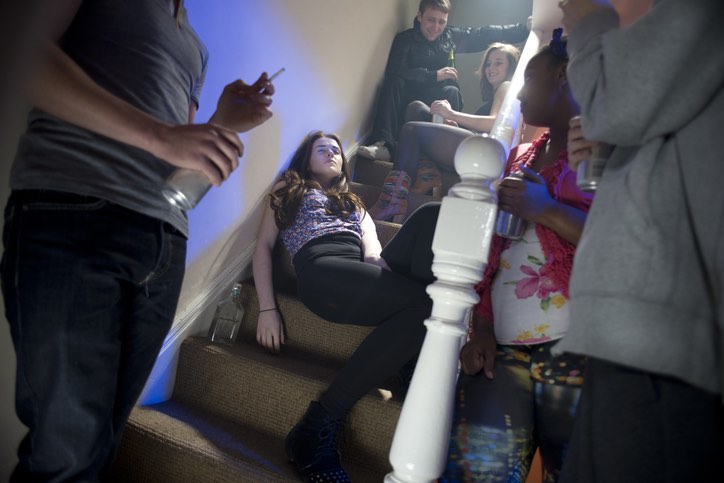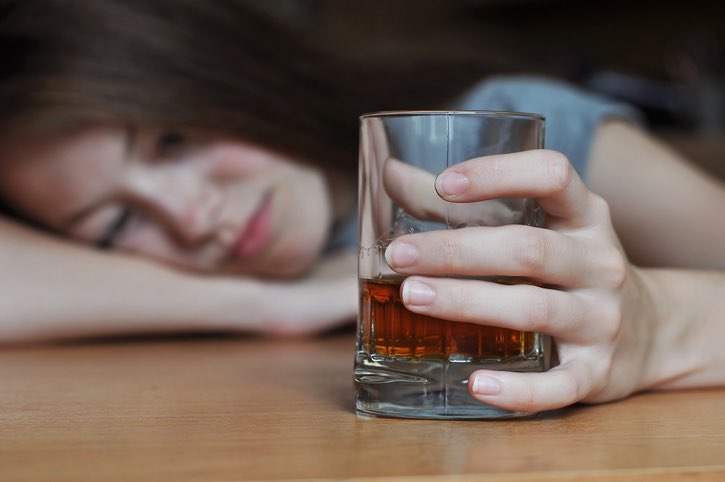Teen Drug Addiction: Helping Teens with Substance Abuse

Adolescence is a time of experimentation, exploration, and identity formation. Along those lines, many teens explore using illicit substances like alcohol, tobacco, or harder drugs during their adolescent years.
While this is often a developmentally appropriate kind of exploration and most teens who experiment with substances will not become addicted to them, sometimes substance use can become unhealthy and even deadly. In 2019, nearly 5,000 young adults died from a drug overdose and about 4,000 young people die each year from underage drinking and excessive alcohol use.
Related: Teen Drug and Alcohol Use Stats Quiz
Why Do Teenagers Try Drugs and Alcohol?

According to the CDC, about two-thirds of adolescents will try drinking alcohol by the time they reach 12th grade. Similarly, about 50% will experiment with cannabis or marijuana use and about 40% will try tobacco cigarettes. Hard drug use is much less common, with about 20% using prescription drugs and about 14% using opioids.
There are many reasons why teenagers might try drugs and alcohol. Some teens are curious and want to experiment, while others might be trying to fit in with their peers. Other teens may experiment with substances to relieve stress or self-medicate untreated mental health issues. Some teens may even use substances to try and do better in school or help them concentrate.
Whatever the reason, it’s important to remember that drugs and alcohol are substances that can be very harmful, especially to developing minds and bodies. Teenagers who use drugs and alcohol are at increased risk for developing a substance use disorder, as well as other health and social problems.
What Are Some Signs That Show That a Teen is Using Drugs or Alcohol?

The first step in helping a teen with substance abuse issues is knowing what signs to look for. Teen Drug Abuse, an organization that provides information and treatment resources for addictions of any kind, lists the following warning signs of drug or alcohol abuse such as:
- Declining interest in activities your teen once enjoyed.
- Changes in grades and school performance.
- Unpredictable mood swings or depression that seem more than just average teenage hormones.
- Loss of friendships, or a sudden new group of friends that your teen seems secretive about.
If your teen is exhibiting these symptoms, or even if you have other concerns that your teen is struggling with drug addiction, it's time to get them help.
Helping Teens Detox and Recover from Substance Abuse or Addict

If your teen is struggling with addiction, it’s important to get them help as soon as possible. Detox and recovery can be a long and difficult process, but there are resources available to help. Many treatment programs and treatment options cater directly to teenagers and their unique needs.
One of the first steps will require talking to your teen. Although you can’t force them to change, you can talk to them about your concerns and present treatment options. If possible
Be prepared for excuses and denials about their behavior, or for the need to have the conversation multiple times. This process can be incredibly frustrating. Helpguide.org, a non-profit resource, offers some additional advice:
- Don't let your teen hit rock bottom. The earlier addiction treatment begins, the better, so talk to them as soon as you start noticing the signs.
- Make sure you have a support system of loved ones, such as family members and friends. It is important not to neglect your own emotional needs. Make sure you have people you can rely on for support.
- Do not make excuses for your teen, or try to cover up their problem. As much as you want them to be safe, trying to protect them from the negative consequences of their addiction will only hinder their road to recovery.
- Remember, you can provide support and encouragement, but you can't force them to change. Do not blame yourself. Addiction is caused by a confluence of factors, many of which are outside our control.
Resources and Treatment Services for Your Teen

If your teen is ready to get help, you have a variety of rehabilitation options available, ranging from residential treatment facilities and outpatient programs to wilderness and equine therapy.
Treatment centers may offer a range of treatment options to your teen, including behavioral health counseling, individual and group therapy, medication-assisted treatment, support groups, and treatment for any co-occurring disorders or mental illnesses, like depression or anxiety.
To help you locate services in your area, the Substance Abuse and Mental Health Services Administration (SAMHSA), a part of the U.S. Department of Health and Human Services, offers a full list of facilities available state-by-state. You can also contact your local public health department, which usually maintains a list of local rehab centers.
Resources for Parents of Teens Dealing with Drug or Alchohol Problems
As a caregiver, helping a teen access substance abuse treatment can take its toll. It might feel like you're the only one who is dealing with these issues, but know that you're not alone. Getting yourself help is just as important as getting help for your teen.
Image:
Your teen's addiction has likely wreaked havoc on your personal and professional life. Rehab, counseling, and therapy can have a major impact on your finances, and feelings of guilt and remorse can have implications on your marriage, family life, and friendships. Getting help will not only benefit you, but it will also help give you the strength to provide your teen and family the support they need.
Some options include:
- Al-Anon This 12-step program is based on the same model as Alcoholics Anonymous, consisting of family and friends of alcoholics who share their experiences and provide support and insight during regular group meetings. It can help you take steps toward coping with your situation. Visit Al-Anon's website to find meetings in your community.
- Nar-Anon This 12-step program is equivalent to Al-Anon for parents of teens who are addicted to drugs. To find meetings near you, visit Nar-Anon's website.
- Therapy Individual or family therapy can help your family work together to cope with one child's addiction, deal with emotions and feelings, and avoid enabling your teen.
- Marriage counseling There is no doubt having a teen dealing with substance abuse can put a strain on your marriage. Counseling can help you and your spouse reconnect and work together to help your teen, and your marriage, get through the addiction.
Additionally, there are many books available that recount the journeys of parents of addicted teens that you may be able to relate to. A few books to check out include:
- Adolescents, Alcohol, and Substance Abuse: Reaching Teens through Brief Interventions by Peter Monti, Suzanne Colby, and Tracy O'Leary.
- Adolescent Drug and Alcohol Abuse: How to Spot It, Stop It, and Get Help for Your Family by Nikki Babbit.
- The Day I Told My Mom I Smoke Pot by S. Maloy.
- Beautiful Boy by David Sheff.
Educating yourself and reading about other families' struggles may help you find different strategies to endure your personal ordeal and know that you are not alone.
It's important to remember that your teen's substance use isn't your fault. You cannot control their behavior and you’re helping them in the best way that you can. Although it may be difficult, getting them the support they need will be worth it in the end.
For more information on how to get your child or family member help with substance abuse and addiction issues, you can call the SAMHSA's National Helpline. It’s a free, confidential, 24/7, 365-day-a-year treatment referral and information service

